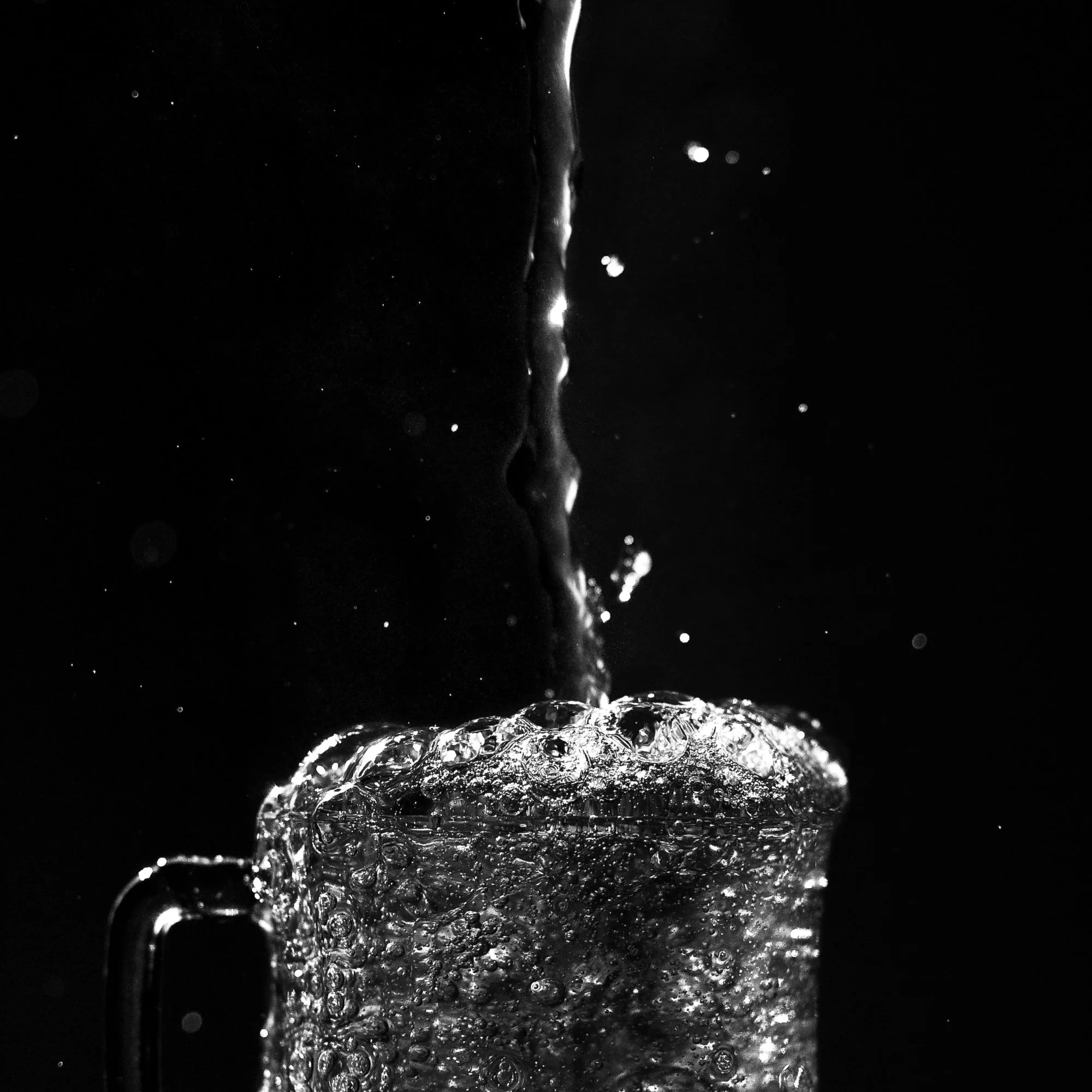Fulvic acid is a hot topic when it comes to the latest in health product innovations. It’s not new. Organic acids have played key roles in self-medication since the beginning of time. However, recent discoveries have led the acid to become more popular. We get that it can be healthy, but is the casual use of these products safe?
What Is Fulvic Acid?
Found mainly in aquatic places, fulvic acid is an organic compound with acidic properties. It is a water-soluble ingredient. Humus contains acid. Which is a soil particle. Decomposed organic matter creates the acid. Following which it then takes on a brown or yellow color. The health world has started providing this acid in many different forms for consumption. Thus, plenty of liquid and powder supplements have hit the market. The acid can also be found in skin cream, clay and capsule form.
Humic substances result from the partial decomposition of plant materials under low oxygen conditions, such as those found in peat bogs and swamps. The composition of these substances varies, since the substances themselves are complex mixtures of different acids. Fulvic acids have lower molecular weights and higher oxygen content than humic acids and are unique in that they are able to travel across cell membranes.
Health Benefits
Fulvic acid’s presence in the medical community prior to its recent public awareness was in products containing humic and/or fulvic acids such as brown coal and coal derivatives (oxifulvic and oxihumic acid). Known for their use as wellness enhancers. They have been tested for their efficacy and safety in treating various diseases. Shilajit is a fulvic acid-rich substance. People with type 2 diabetes have used the substance to treat symptoms. This form of treatment goes as far back as 3000 years ago. Now, it has a more casual use and has been as a nutritional, “pick-me-up”. These include the rebuilding of the immune system, helping to repair cell damage in the form of an antioxidant, as well as nutrient absorption.
During decomposition, fulvic acid gets broken down and lost. When taking fulvic acid-infused supplements, any minerals and trace elements from food are dissolved into a form that makes them more active and more available to the body. Thus optimizing the effectiveness of your everyday nutrients.
Nutrition
Among other nutritional benefits, the acid contains an assortment of fatty acids, hormones, vitamins, minerals, ketones, and flavonoids, nutrients needed for healthy cell and body development. The actual breakdown of which is quite vague and varies depending on the product.
Fulvic acid contributes to improved digestive health and better nutrient absorption. This is due to trace minerals, electrolytes, fatty acids, silica (which boosts collagen synthesis), prebiotics and probiotics. Fulvic acid supplements, therefore, come in handy in promoting good health.
Not only does fulvic acid help your body absorb nutrients, but it also facilitates a chemical reaction. Meaning supplements help in the binding and breaking down of enzymes in your body. In doing so, fulvic acid works throughout the body, making sure that the thousands of chemical breakdowns that happen in our body happen quickly and effectively. Basically, fulvic acid helps your body regulate its natural reactions.
Medical Benefits
Gastrointestinal disorders, diarrhea, constipation, bloating, and flatulence. These are all said to show signs of improvement when taking fulvic acids. This is due to the nutritious minerals, electrolytes, and fatty acids. All work well together to ensure improvement in gut health. This could help improve conditions such as Irritable Bowel Syndrome (IBS).
When it comes to general wellness, these benefits are generally welcomed. However, there has been concern over claims that fulvic acid supplements assist in the improvement in symptoms of various serious diseases such as the HIV virus, as a blood coagulant; as a treatment for eye disease, thyroid tumors, colds and asthma, diabetes, and tuberculosis. There is no scientific evidence to substantiate this.
Everyday Wellbeing Essential?
To obtain optimal health we all need a certain amount of vitamins, minerals, as well as essential amino and fatty acids. To be exact: 17 vitamins, 59 minerals, 12 amino acids, and 3 fatty acids. Previously, nature would provide us with these nutrients through following a normal diet without the need for added supplements and specialized dietary requirements.
Nowadays, there is a difference in our foods. We are consuming mostly mass-produced and processed foods. Our local supermarkets stock genetically modified foods. Foods are also grown in varied environments that may be unreliable and unhealthy. Therefore, we are left losing out on essential nutrients. The soils are left missing both fulvic minerals and fulvic acid. This is due to modern farming methods. Making it important to consider supplementing with a trace minerals supplement.
Fulvic acid supplements contain at least 70 different types of trace minerals and vitamins essential for proper cell and body development. Most of the trace minerals and vitamins are absent in many of the foods we eat every day. One dose of a fulvic acid supplement daily is enough to supplement your nutritional intake regardless of what you eat.
It’s no wonder Chemical Nobel Peace Prize winner Dr. Linus Pauling has said, “You can trace every sickness, every disease, and every ailment, ultimately to a mineral deficiency”.
Dietary Sources
There are natural and far easier ways of eating fulvic acid. Truly organic vegetables have high levels of fulvic acid. This is because the heavy chemicals and pesticides used in the soil kill plenty of beneficial soil bacteria. Vegetables grown in healthy soils, therefore, contain high amounts of fulvic acid. These include root, bulb, and even sea grown vegetables. Carrots, turnips, parsnips, radishes, potatoes, dandelion roots, ginger, onions, spring onions, leeks, shallots, and even seaweed.
Gardening in pesticide and chemical-free soil is another way of retaining naturally occurring fulvic acid.
External Usage
Key ingredients in many products intended for external usage contain fulvic acid. Moreover, fulvic acid when applied topically treats open wounds. This includes burns with minimum pain or scared, as well as cuts and abrasions. It also helps heal insect and spider bites. It can help improve rashes and skin irritation. Fulvic acid also acts as a wide spectrum of anti-microbial and fungicide. Moreover, fulvic acid is able to neutralize poison ivy and poison oak.
Black Water
Drinking fulvic acid may prove incredibly helpful for highly active people and/or sportsmen. The properties in the water dissolve silica and carry it to our joints.
The water produces its black colored appearance through the fulvic acid ingredient addition. This fulvic acid-infused water has a PH of 8.5. This apparently assists in balancing the body’s PH levels. However, according to internal medicine specialist Ali Zentner, “Alkaline water might be alkaline in the bottle, but it’s not going to be alkaline once it hits your stomach.”
Ingredients
The challenge when it comes to isn’t much information about the ingredients that make up fulvic acid-infused water. Suppliers have stated that the product simply contains, “spring water and fulvic minerals”. Fulvic minerals are a vague term. All kinds of minerals could be described using this term. This could be fulvic humic or fulvic acid in general. Plant-based minerals or any soil-based minerals including clay minerals could also fall under this description. Also included in the long list of fulvic minerals are Potassium, Sodium, and Chlorine. They all contain electrolytes. Aluminum – found in the processed foods we aim to avoid, as well as antiperspirants and pharmaceuticals. What could also be included is silicon, arsenic, and lead. This may be cause for concern.
Pharmaceuticals and alcohol shouldn’t be mixed with fulvic acid water or supplements. Retailers often add a suggested dosage. Pregnant and breastfeeding women are not advised to take fulvic infused supplements. Although there have not been any studies proving or disproving the safety of these women. It’s best to stay on the safe side.
Is It Safe?
Fulvic acid is soluble in strong acid. Fulvic acid supplements help rid your body of toxins. Thus, taking these supplements may result in diarrhea, cramps, fatigue, headaches, or nausea.
Alongside the often vague ingredient descriptions of most fulvic acid products- suppliers are also not precise as to the source of the fulvic acid. Coal is a fulvic acid derivative. This is known as oxifulvic acid. Lakes that have possible toxic levels of pollution could also be fulvic derivatives. The acid also doesn’t have a known expiry date. However, manufacturers often give their fulvic supplements an expiry date of 2-5 years on average.
Many also recommend the previously mentioned fulvic acid-rich supplement shilajit as a means of digesting fulvic acid.
Shilajit
Shilajit contains the highest fulvic acid content over any other source found in nature. The substance contains heavy levels of lead, mercury, and arsenic. In fact, some fulvic acid supplements contain these substances. This has resulted in reported cases of lead poisoning in the United States. However, other arsenic and mercury may lead to poisonous conditions of their own.
There has not been enough research on the effects. As well as what daily dosages would be healthy to consume. Due to the toxic ingredients enlisted in the beverage; overconsumption may be harmful.
Always read dosage directions carefully when supplementing with the acid, since using too much can also lead to unbalanced mineral levels in the body.
Conclusion
There is clearly some merit in supporting your health with fulvic acid if you lack it in your diet. It’s not a wonder drug, but it is an important mineral. However, it is important that you buy from reputable sources and check labelling. The source is important. Make sure that you know your source is pure and that the fulvic supplement is responsibly derived.


